How does exercise affect my blood glucose levels?
Although physical activity has huge benefits for people with diabetes, it can also cause hypoglycemia.
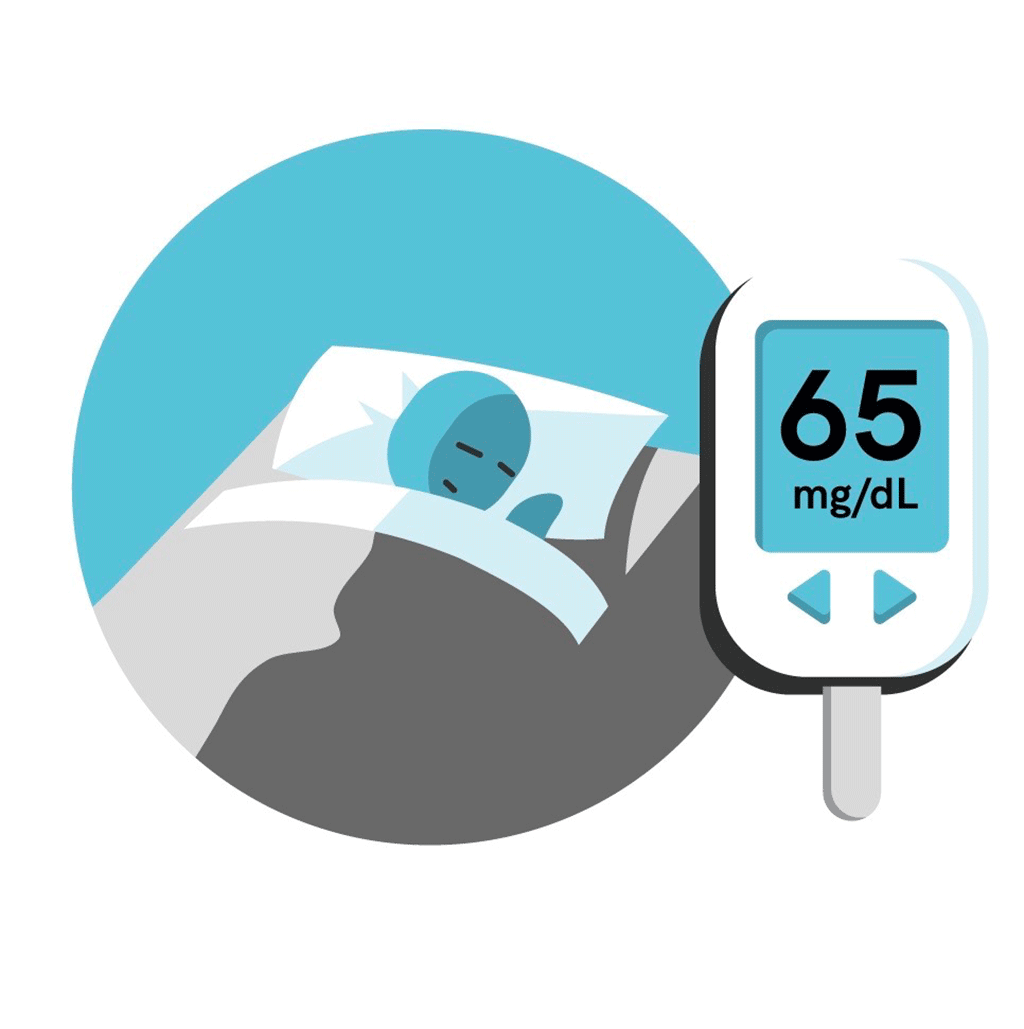
Low blood glucose can be serious if you aren’t aware it might be happening.
Why does exercise cause hypoglycemia?
Exercise helps lower blood glucose levels by increasing the body’s insulin sensitivity (its ability to use insulin).
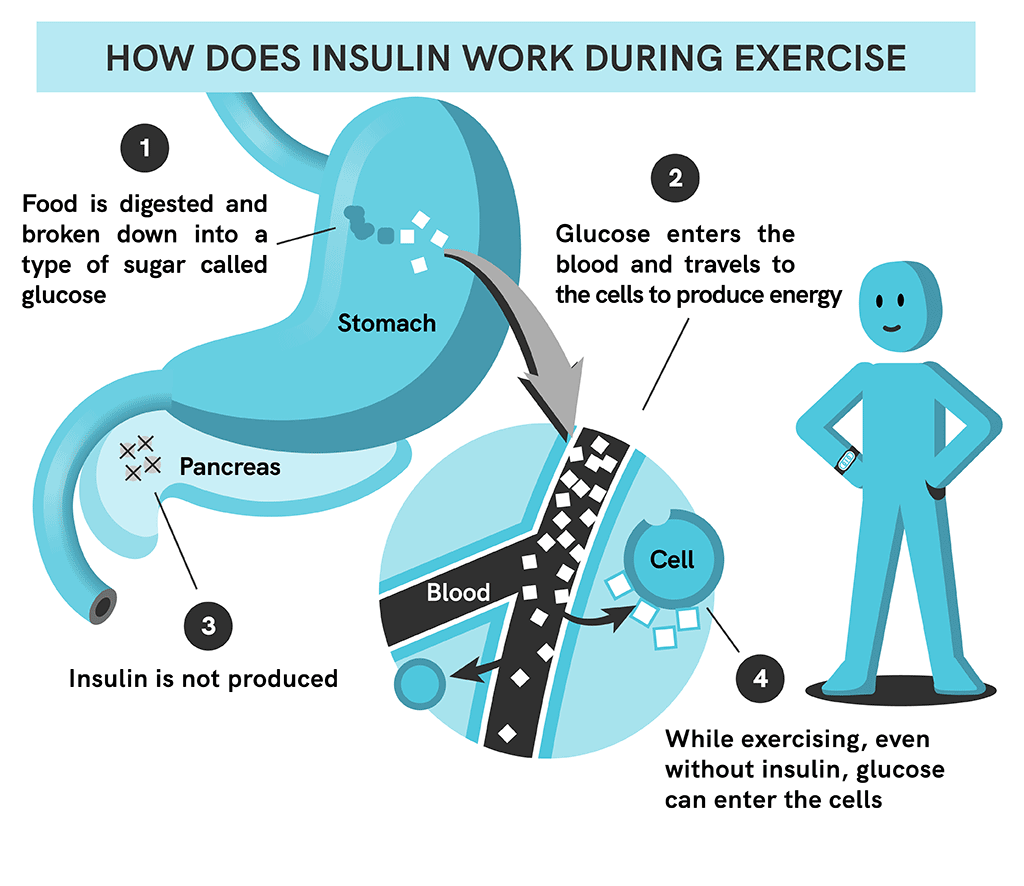
This helps the muscles get more glucose for energy, but also causes hypoglycemia as the glucose leaves the bloodstream.
When does exercise affect blood glucose levels?
Exercise can affect blood glucose levels during or immediately after exercise. Blood glucose levels can even be affected up to 24 hours later, and can happen during sleep.
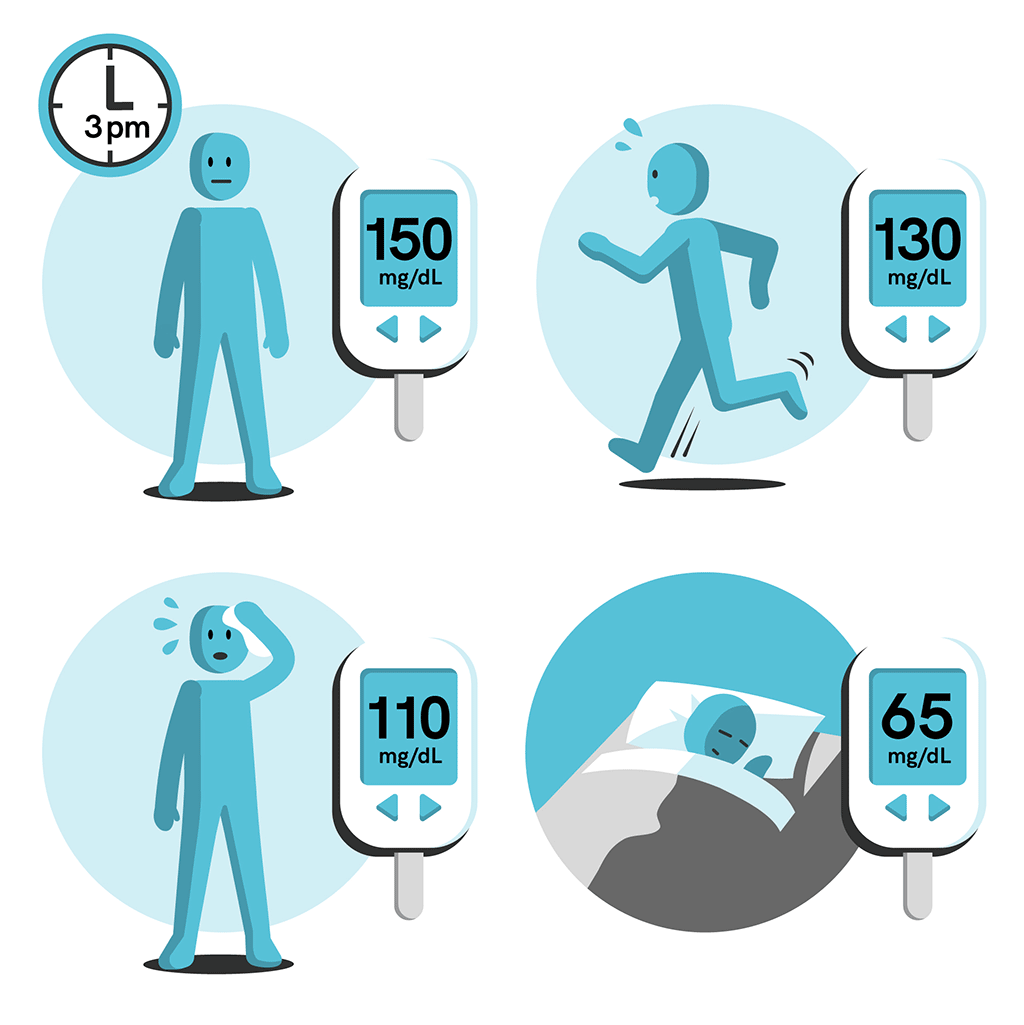
The best way to know how exercise affects your blood sugar is to do a blood sugar test before, during, and after exercise.
Before you start your workout: It is generally okay to begin exercise if your blood glucose is between 100 mg/dl and 250 mg/dl.
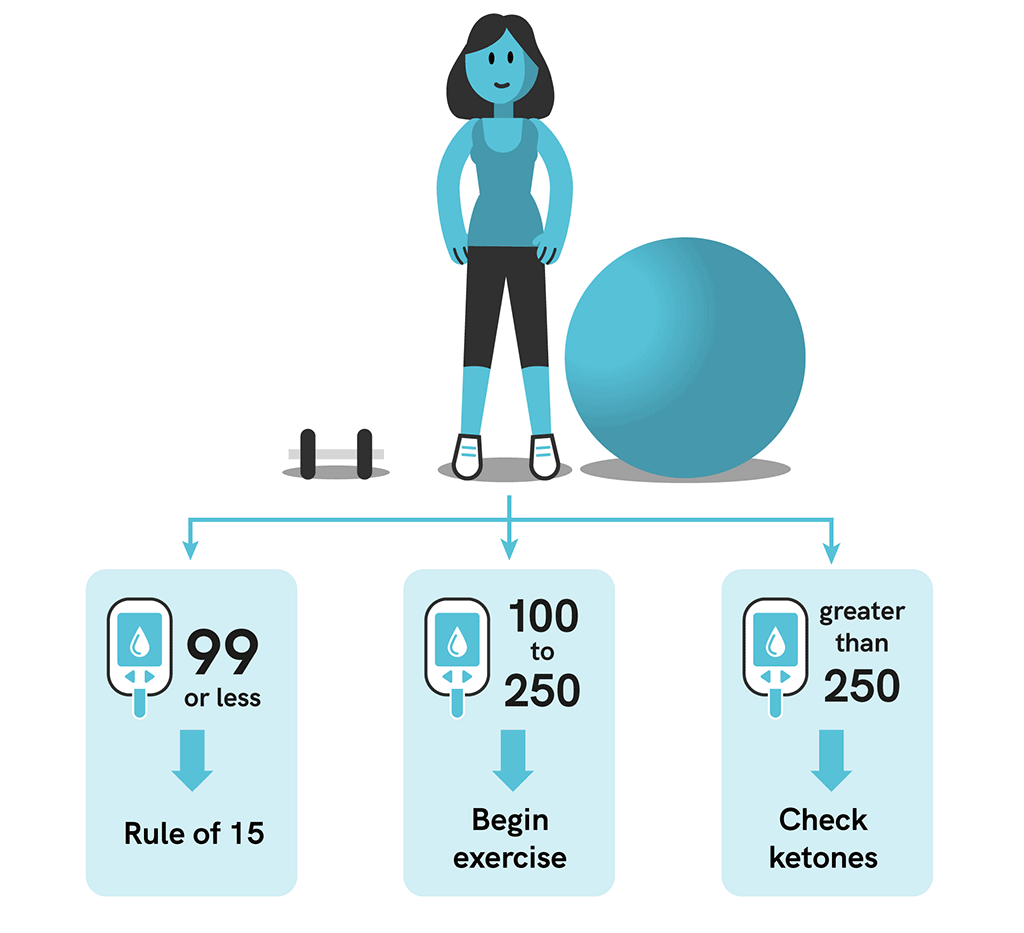
What is the Rule of 15?
The Rule of 15 explains how to treat hypoglycemia, or a blood glucose of less than 70. Follow the steps below:
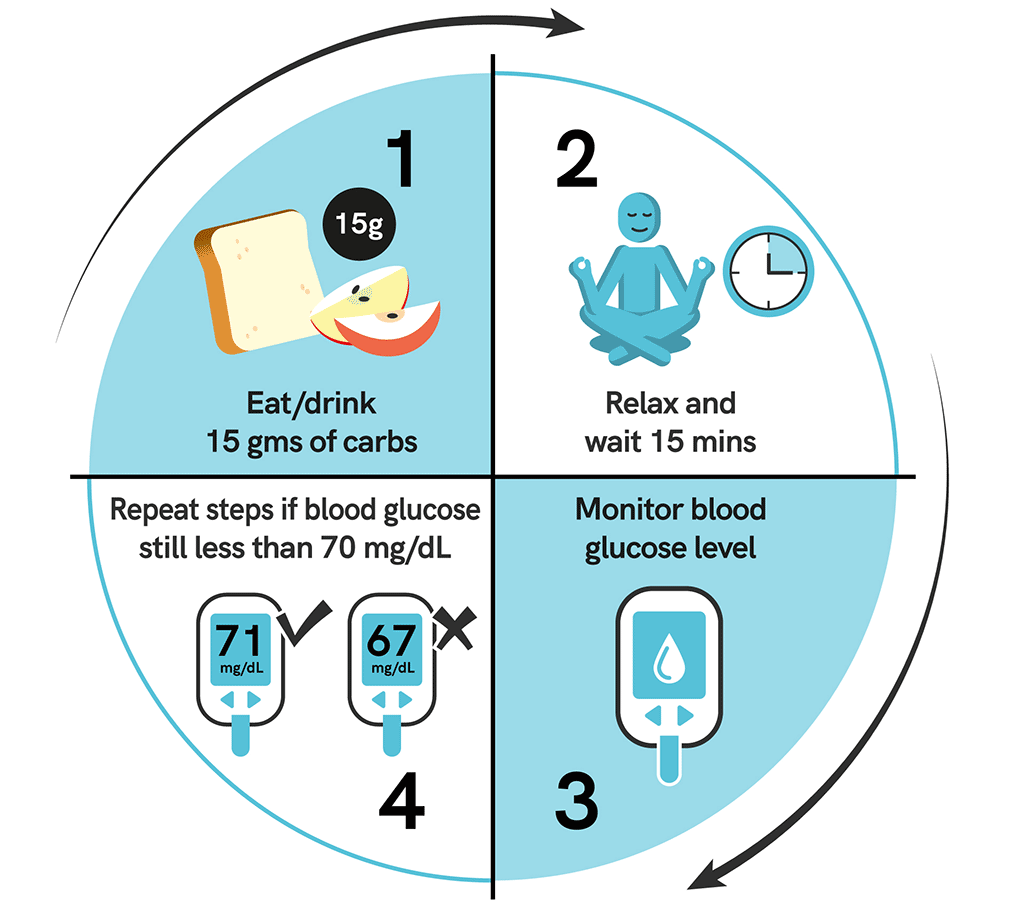
If you’re planning a long workout of 2 hours or more, don’t start until your reading is above 100.
What if my blood glucose is greater than 250?
If your blood glucose is higher than 250, check your urine for ketones. Ketones are produced when your body burns fat instead of glucose for energy.
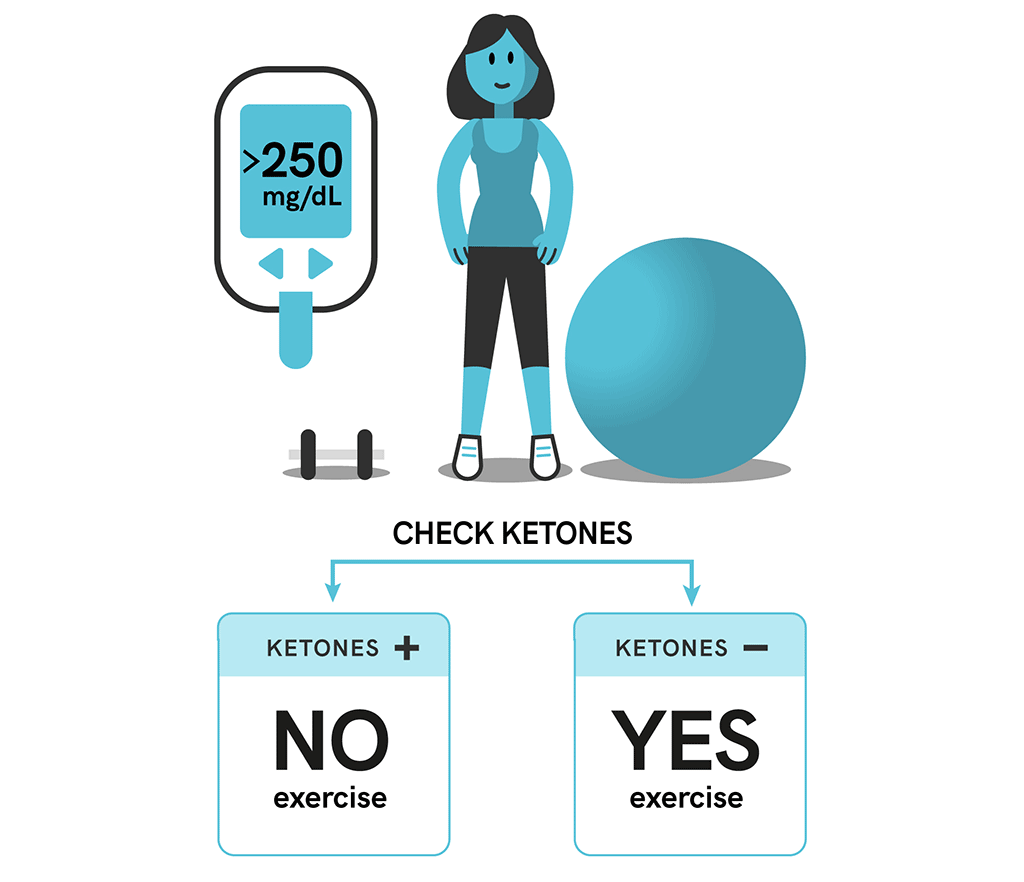
During your workout. Check your blood glucose every hour during exercise if you plan to work out for 2 hours or more, or feel symptomatic.
After your workout. Check your blood glucose again when you’re done. If your blood glucose is below 100 mg/dl follow the same steps you followed before your exercise.
Your levels may drop for up to 24 hours after either a medium or tough workout, so test your blood glucose at your regular times, too.

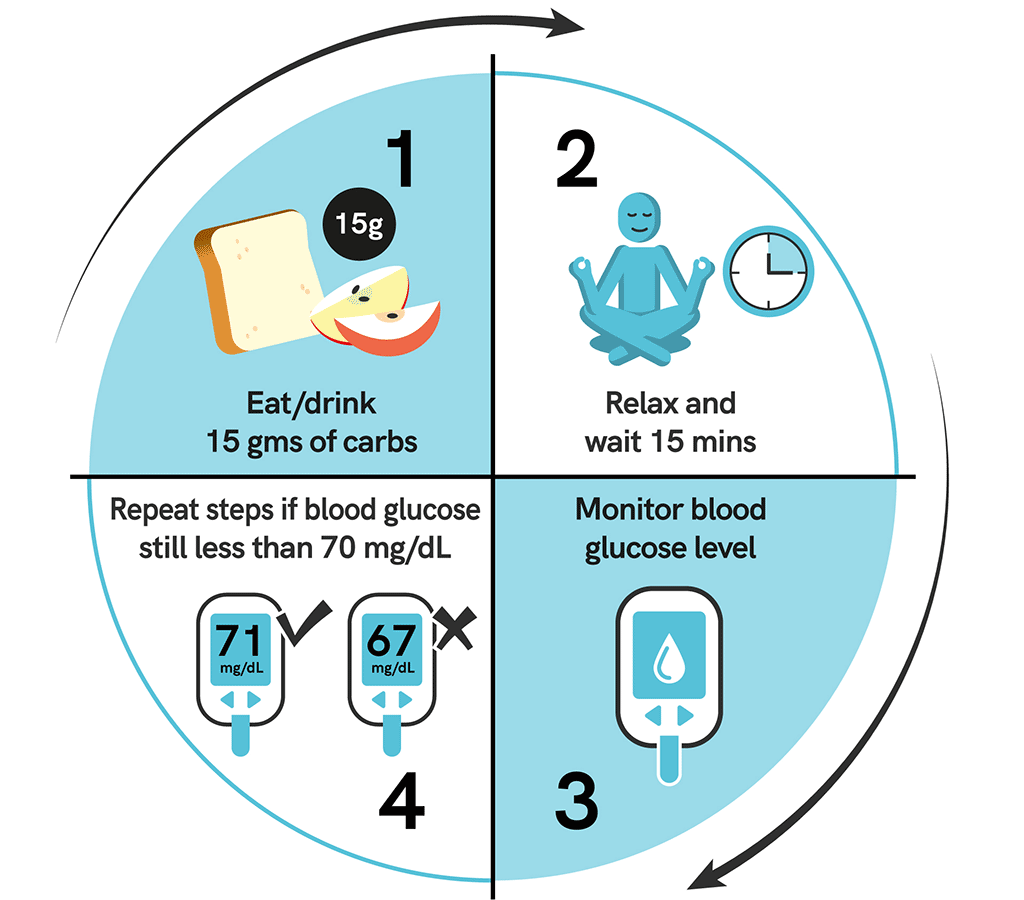
How can I avoid hypoglycemia?
A few tricks can help you prevent hypoglycemia when you exercise:
- Don’t work out when your insulin will peak.
- Finish up at least 2 hours before bedtime.
- Skip alcohol before or right after you work out.
- Stay out of hot tubs, saunas, and steam rooms directly after.
- Record the details of physical activity (frequency, intensity, time, type), food and medications
- Reduce insulin or medication dosage before exercise if advised by your care team
- Notify a relative or friend before participating in exercise
- If exercising in a gym, notify the staff about your diabetes and treatment options.
Leave a Reply